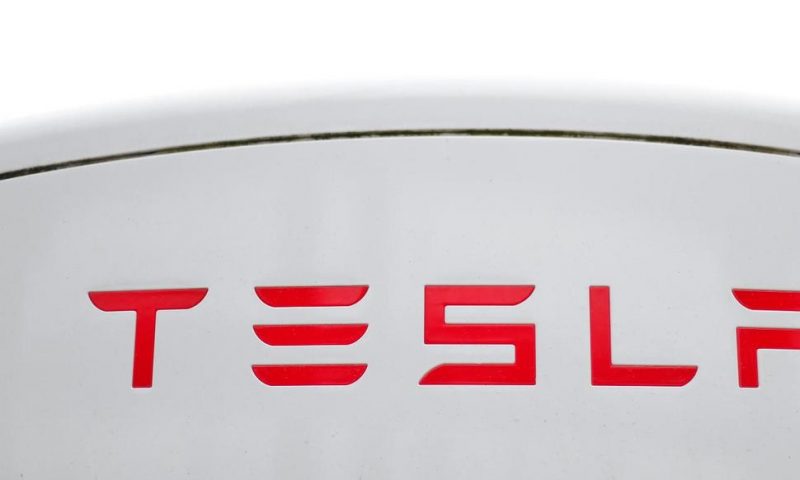Tesla charged through a summertime auto industry sales slump in the U.S. to post stronger-than-expected net earnings for the third quarter.
DETROIT — Tesla charged through a summertime auto industry sales slump in the U.S. to post stronger-than-expected net earnings for the third quarter.
The electric car and solar panel maker said Wednesday that it made $331 million, or 27 cents per share, for its fifth-straight profitable quarter.
Excluding special items such as stock-based compensation, Tesla made 76 cents per share, beating Wall Street estimates of 57 cents. Revenue from July through September was $8.77 billion, a record that passed analysts’ expectations of $6.3 billion, according to FactSet.
But as in previous quarters, the company relied heavily on $397 million it earned from selling electric vehicle credits to other automakers so they can meet government fuel economy and pollution regulations.
The earnings were driven by a 44% increase in global deliveries for the quarter, which came as U.S. auto sales overall fell 9.7% from a year ago due to consumer fears about the economy hit hard by the pandemic.
Shares of the Palo Alto, California, company rose 3% in extended trading Wednesday. Its results were released just after the markets closed. Tesla’s shares are worth about five times what they were at the start the year, accounting for a split.
The third-quarter profit was more than double the same period a year ago, when Tesla made $143 million. Its string of profitable quarters reversed years of losses. Through the first nine months of this year, Tesla has made $451 million and appears headed toward its first annual profit.
Jessica Caldwell, executive director of insights for the Edmunds.com auto website, said the company’s results and production show it has moved out of rookie territory and may become a mainstream automaker this decade.
But she said the release Tuesday of an all-electric GMC Hummer shows that Tesla is facing competition from multiple auto companies.
“With more EV launches on the horizon, Tesla has a big red target on its back,” she said.
On Oct. 2, Tesla reported that it had delivered 139,000 SUVs and sedans from July through September, compared with 97,000 deliveries during the same period a year ago. Analysts said China, where the economy is recovering, was a major source of sales for Tesla.
In a letter to investors Wednesday, Tesla said it still is on target to deliver a half-million vehicles this year, something promised earlier by CEO Elon Musk. The company said hitting the target “has become more difficult” and depends on increases in production of the Model Y small SUV and at the company’s plant in China.
Tesla said it should have sufficient cash to fund its future products, which include the Cybertruck pickup and a Semi, as well as its long-term expansion plan. Tesla is adding Model Y production capacity at its Shanghai plant and is building new factories in Germany and near Austin, Texas. Deliveries from the new factories are planned for next year, the company said.
On a conference call, Musk said the company has sent out full self-driving software to a small number of owners for testing on public roads. The system will be released more widely by the end of the year, he said.
Musk said Tesla is starting slowly in order to be safe, gathering data on rare traffic cases that can’t be anticipated.
“Weird corner cases, only reality can get you that.” he said. “We need to train the system on this corner-case situation, look for examples.”
Eighteen months ago, Musk pledged to have a fleet of robotaxis operating by the end of this year. But that apparently won’t happen. Musk said Tesla will focus on enabling the robotaxi system but gave no date.
Critics have said that Tesla doesn’t have the proper sensors to safely release a full-self-driving vehicle.

